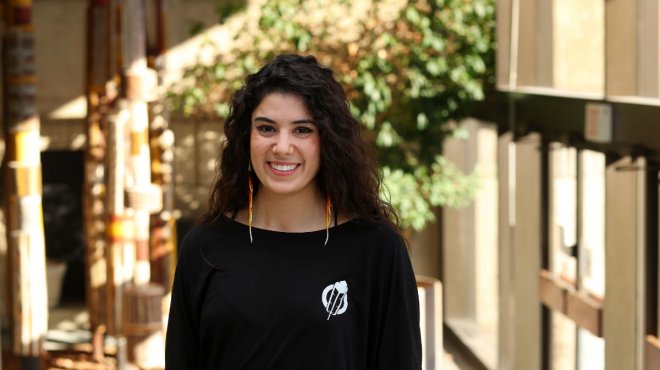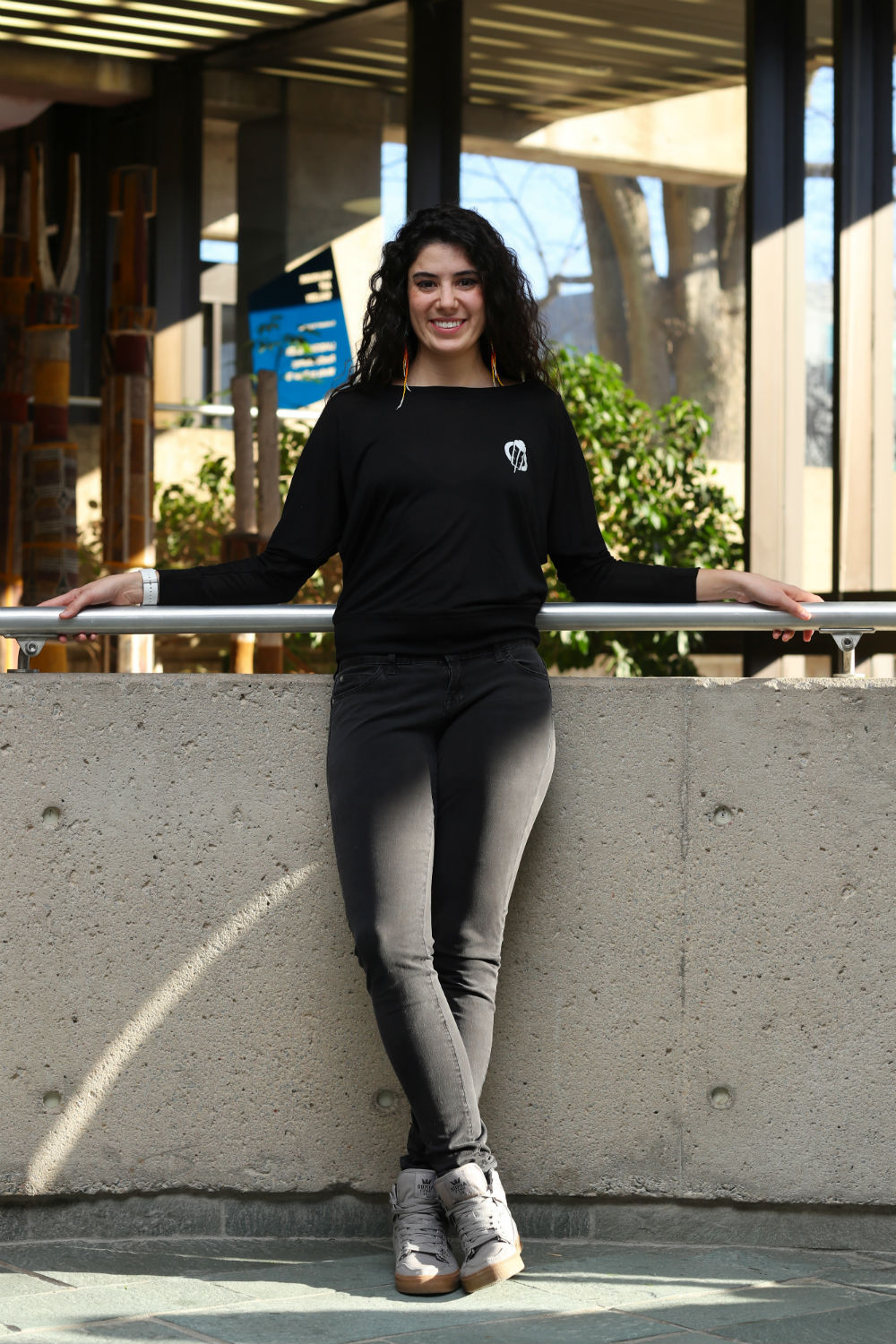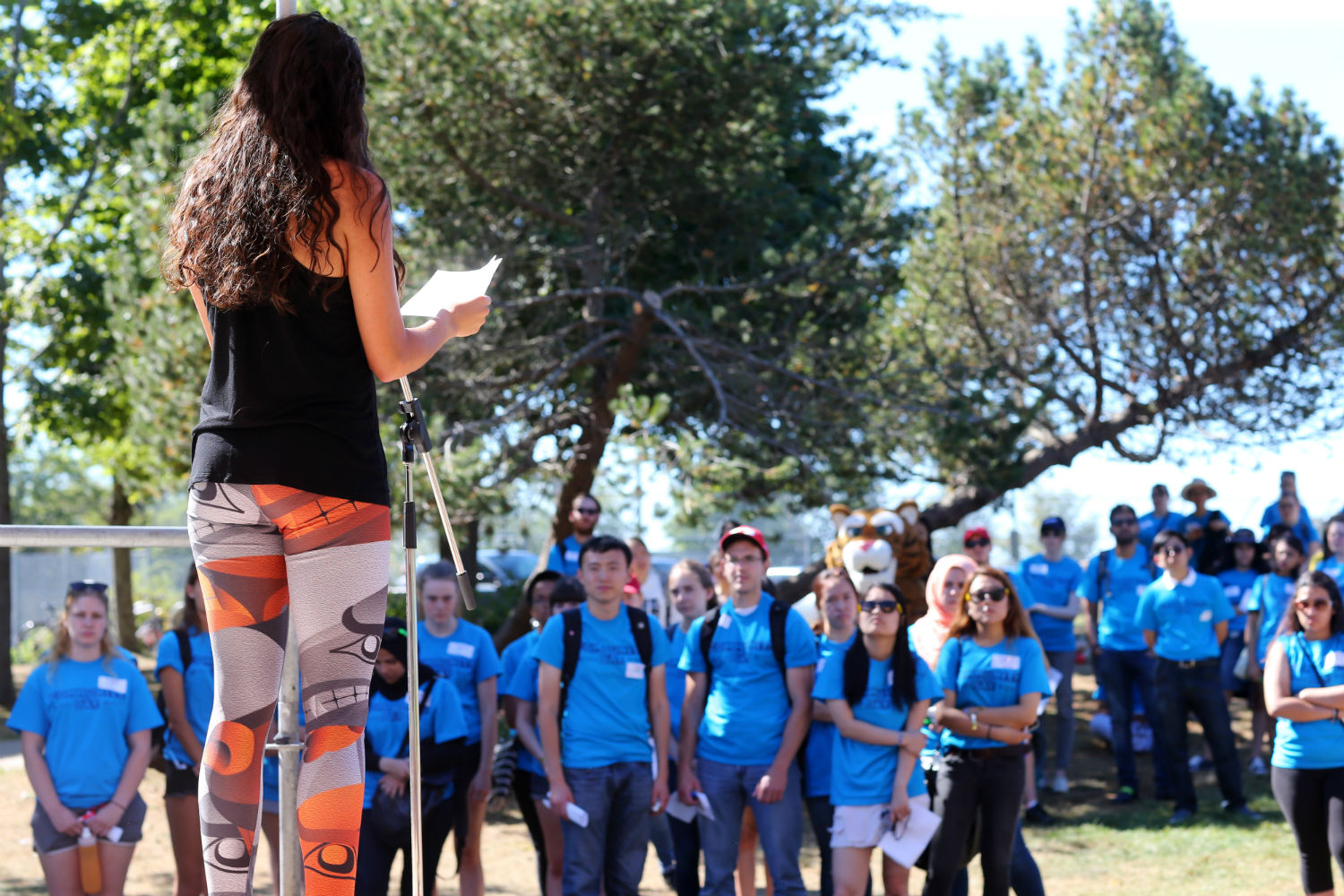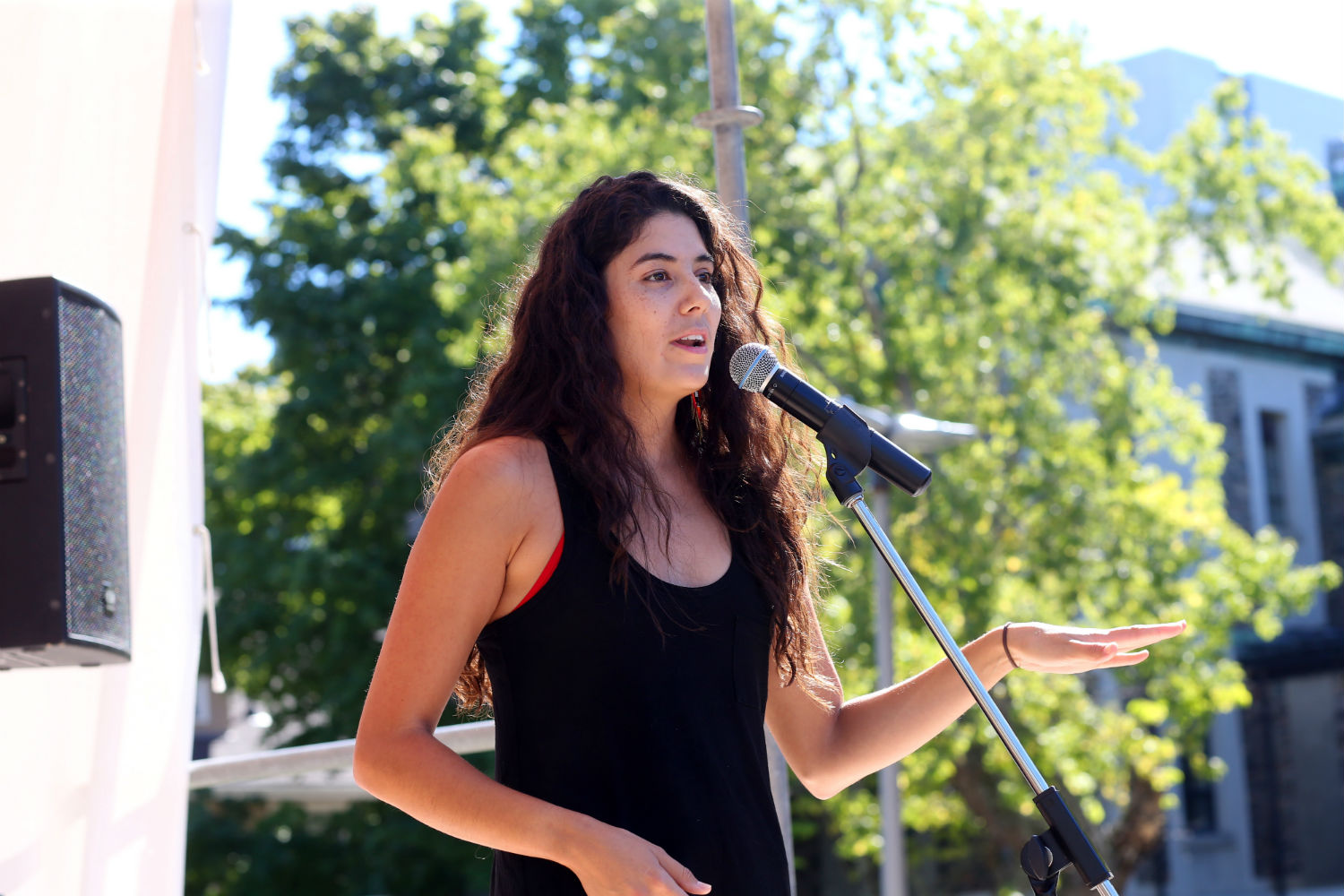
Rebecca Thomas (BA’09, MA’13): Powerful poet
By Mark Campbell
Rebecca Thomas (BA’09, MA’13) is not sure how many times she has tweeted at Prime Minister Justin Trudeau. He may not have responded as yet, but she figures it is only a matter of time before he will. After all, Carolyn Bennett, the Minister of Indigenous and Northern Affairs, has replied to Thomas’s tweets about Indigenous rights and culture.
“I never stop lobbying,” Thomas asserts. “If that amounts to the dismantling of the Indian Act and the rebuilding of an Indigenous legislature from scratch, that would be cool, but I’m doing small stuff where I can.”
Thomas may occasionally see her efforts as small, but this Mi’kmaw activist, poet laureate and Dalhousie alumna’s provocative, unflinching and emotionally charged poems are having a significant impact on public perceptions about Indigenous people and culture. She has developed a strong Facebook following with work inspired by her mixed race heritage (A Toast to the Mixes), the death and disappearance of Indigenous women nationwide (Pennies) and the ugly legacy of North American sports teams appropriating Indigenous culture (I Am Honoured, which sardonically appropriates Take Me Out to the Ball Game).
Articulating knowledge and experience through poetry
The impact of Thomas’s words is particularly impressive when you consider she only started writing poems  in 2013. Yet, her work is informed by a lifetime of personal observations and experiences, extensive academic and personal writing, and the knowledge she gained about Indigenous culture while studying at Dalhousie University.
in 2013. Yet, her work is informed by a lifetime of personal observations and experiences, extensive academic and personal writing, and the knowledge she gained about Indigenous culture while studying at Dalhousie University.
“Through my Social Anthropology masters, and the years of my undergraduate studies, I had the opportunity to delve into Indigenous histories and socioeconomics, and the lack of attention they receive in Canada,” Thomas says. “Dalhousie gave me a really good knowledge base in those issues.”
Ugly as beautiful
Thomas stresses that her work is not intended to be confrontational; her goal is to start a dialogue on Indigenous history and culture, and how government policies, such as the residential school system, have had a damaging effect on Indigenous people, including her father, and their sense of identity over the years.
“It’s nice to be able to write about a very negative history in a way that’s beautiful and that teaches,” Thomas says. “When you try to engage people in conversations about these issues, their eyes may glaze over. But if you can entertain people through a poem, they may pay attention and learn something. That’s what I find rewarding about poetry.”
Voicing complex Indigenous identities
 She also finds it rewarding when other people recognize themselves and their experiences in her writing as poetry helped Thomas gain a stronger sense of her identity and heritage.
She also finds it rewarding when other people recognize themselves and their experiences in her writing as poetry helped Thomas gain a stronger sense of her identity and heritage.
“I always felt that, because I grew up off-reserve, because I’m not a drummer or singer or dancer, and because I’ve got curly hair and freckles, I almost didn’t have the right to lay claim to the identity of an Indigenous person. But ours is a history of storytellers, so in finding my voice as a poet, speaking my truth and meeting people whose stories are similar to mine, I’ve realized that indigeneity is very complex, and I’m a different manifestation of Indigenous identity.”
That, in turn, has motivated Thomas to be a mentor to others, to help them find their voices—be it through poetry or other forms of expression. As Halifax’s Poet Laureate, she is able to visit schools and encourage young people to articulate their truth.
“I’ve been a camp counsellor with organizations such as the YMCA in Moncton and the Friendship Centre in Halifax,” Thomas explains. “I was not writing poetry at that time, but I was very active in engaging youth in a way that made them feel that someone would listen to what they had to say.”
Just a Poet Laureate on stage at the Women’s March On Washington. I was a last minute add. I was… https://t.co/3AaskNl5Qy
— Rebecca Thomas (@beccaleat) January 21, 2017
Lighting fires
 “I see so much power, beauty and wisdom in youth that I want to encourage them to keep that fire. Being a mentor is one way to do that. To see them build confidence by participating in a slam poetry competition, to see them light up when you tell them what they say has merit and power, that’s an exciting feeling.”
“I see so much power, beauty and wisdom in youth that I want to encourage them to keep that fire. Being a mentor is one way to do that. To see them build confidence by participating in a slam poetry competition, to see them light up when you tell them what they say has merit and power, that’s an exciting feeling.”
Thomas is planning to publish her own work but is more excited about the possibility of making a digital album because the power of her words lies, to some extent, in how she delivers them. Meanwhile, there are more issues to tackle through poetry, and more young people to mentor, particularly Indigenous youth. She suggests that may resonate more than her own writing in the long run.
“If Indigenous people find their voices and a better life in the future in part because of what I’ve done, then that’s the legacy that I want to leave behind.”
Photos: Nick Pearce